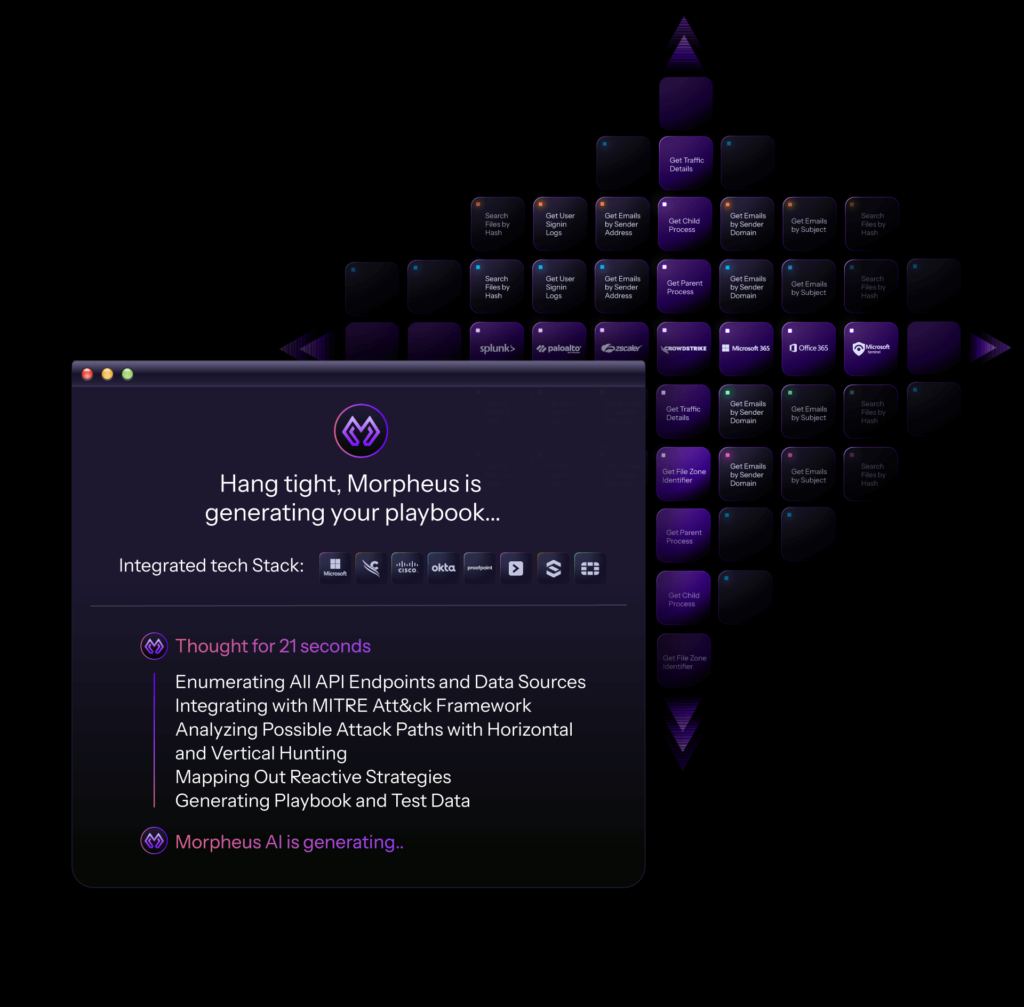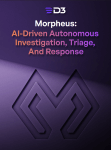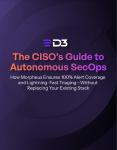The cybersecurity industry is increasingly exploring AI-driven solutions to enhance Security Operations Centers (SOCs). Among these, agentic AI, comprising multiple autonomous agents handling specific tasks, has gained attention. However, this approach introduces several challenges:
- Operational Complexity: Managing numerous agents can lead to coordination issues and increased overhead.
- Security Risks: Each agent represents a potential attack vector, expanding the threat surface.
- Auditability Concerns: Tracking decisions and actions across multiple agents complicates compliance and forensic investigations.
Recent studies highlight these concerns. For instance, a recent survey revealed that 80% of companies experienced unintended actions by AI agents, including unauthorized access and data sharing. Moreover, only 52% of professionals had full visibility into the data their agents could access, underscoring the governance challenges associated with agentic AI.

Morpheus: A Unified Approach to Autonomous Security
Morpheus offers a different path: combining the adaptability of AI with the structured governance of traditional playbooks. As a centralized, persistent Autonomous SOC engine, Morpheus provides:
- Dynamic Workflow Generation: Instead of relying on static playbooks, Morpheus autonomously generates workflows based on real-time context, ensuring that responses are tailored to the specifics of each incident.
- Centralized Control and Visibility: All actions and decisions are logged within a single platform, facilitating easy auditing and compliance reporting.
- Scalable and Resilient Operations: Morpheus can handle a high volume of alerts across diverse environments without the need for multiple, specialized agents.
This unified approach addresses the shortcomings of both traditional playbooks and agentic AI, delivering a more robust and manageable solution for modern security operations.
Key Considerations When Evaluating AI Solutions for the SOC
When assessing AI-driven security solutions, consider the following factors:
- Integration Capabilities: Ensure the solution can seamlessly integrate with your existing security infrastructure, including SIEMs, EDRs, and cloud platforms.
- Policy Alignment: The AI should operate within the bounds of your organization’s security policies, ensuring consistent and compliant responses.
- Transparency and Auditability: Look for solutions that provide clear, documented reasoning for their actions, facilitating trust and compliance.
- Scalability: The solution should be able to handle increasing volumes of alerts without degradation in performance.
- Operational Efficiency: Evaluate how the solution reduces manual workloads, accelerates response times, and enhances overall SOC efficiency.
Embracing Centralized Autonomy for Effective Security Operations
While agentic AI offers the allure of modular automation, it often introduces complexities and vulnerabilities that can undermine security operations. By adopting a centralized, persistent Autonomous SOC engine like Morpheus, organizations can achieve scalable, reliable, and secure automation, ensuring that security operations are both efficient and trustworthy.
Discover how Morpheus can transform your SOC operations. Request a demo today.




